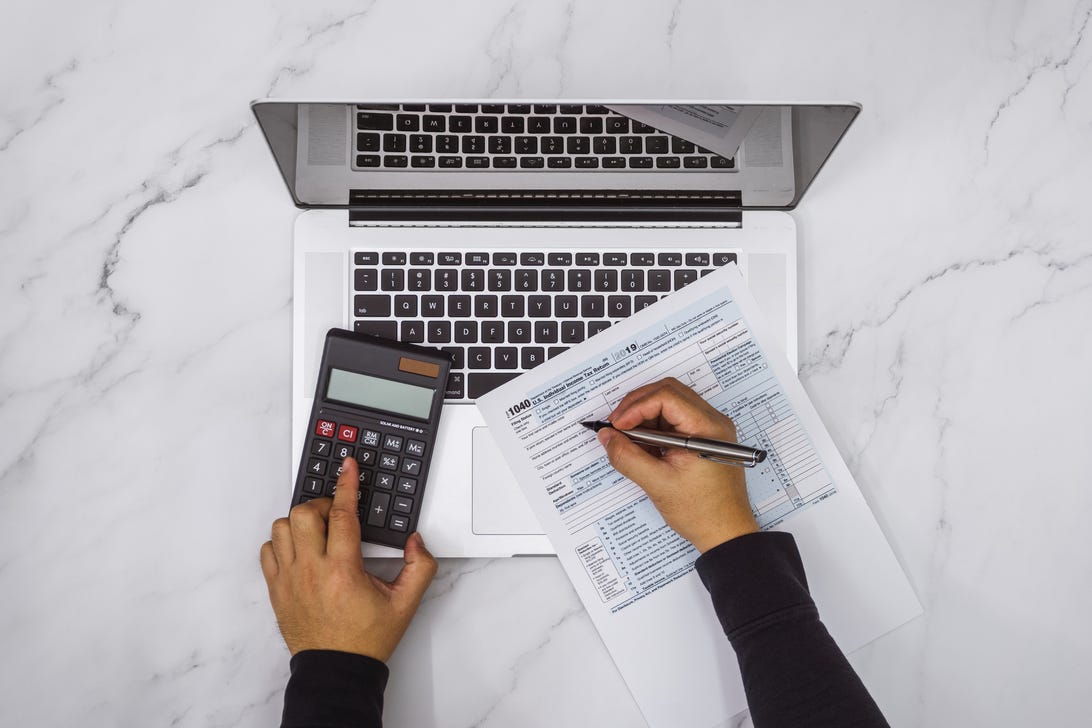
Getty
Get a PIN. File this tip under things to remember for next year. Taxpayers who can validate their identities with the IRS can obtain an identity protection PIN, a six-digit code that prevents a cybercriminal from filing a fraudulent tax return with your Social Security number.
Many scams start off with phishing emails designed to look like they’re from the IRS or an IRS agent. The emails come complete with logos and letterheads that look like the real deal, says Joseph Gallop, cyber threat intelligence manager for the email security company Cofense.
“The IRS reminds people over and over again that they never reach out through unsolicited calls or emails,” Gallop said. Keeping that fact in mind, he adds, will go a long way toward protecting yourself.
Spice up your small talk with the latest tech news, products and reviews. Delivered on weekdays.
Here are a few tips from ITRC and the IRS for staying alert.
Stick to your home Wi-Fi. While the odds of a “man in the middle” attack are remote, this isn’t the time to be messing around on coffee shop networks or even the one at your office. While you’re at it, make sure that your router is locked down with a strong password.
You aren’t alone if you haven’t filed your taxes yet. Lots of people put off the tedious and potentially expensive chore. Now, with the clock ticking more loudly, you might be in a last-minute panic to get them done before the April 18 deadline.
Still need to file your taxes? Watch out for scammers.
Shred everything. Tax documents that are no longer needed must be properly destroyed, Velasquez says. Dumpster diving still happens. Don’t be tempted to toss them in the trash and definitely don’t put them in the recycling.
Always use good passwords and 2FA. These are both a must for any account related to your tax returns and documents. Make sure you’re using good antivirus software and that it, along with your operating system, is up to date. While you’re at it, back up your tax information to a removable drive or encrypted cloud storage. Paper copies and drives should be securely stored.
Consumers also need to take care to protect their personal information when filing their taxes to prevent future identity theft or fraud, says Eva Velasquez, president and CEO of the Identity Theft Resource Center, a nonprofit that helps identity theft victims.
It’s good advice because Cofense researchers say there’s been a recent spike in tax season-related scam emails because of renewed use of the massive Emotet botnet. It’s long considered one of the most dangerous of its kind because it has the capacity to send out hundreds of thousands of emails.
While, admittedly, it’s too late to do so this year, Velasquez says the best way to protect yourself from refund thieves and other tax-related fraud is to file your taxes early.
Velasquez notes that people often find out during tax time that they’re already victims of identity theft. A common occurrence: taxpayers filing their taxes only to find out that someone else beat them to it in an effort to swipe any refund.
The longer you wait to file, the longer you’re leaving the window open for someone else to do it,” she said. “This is a crime of opportunity.”
Watch out for phishing and smishing. The IRS won’t send unsolicited emails or texts, though some cities and states might. Don’t take any chances. Skip the links and attachments and go straight to the IRS or the applicable state and city websites.
That said, there are still ways for procrastinators to protect themselves. The Identity Theft Resource Center is one of several security and consumer protection organizations partnering with social media platform TikTok to urge filers to “#BeCyberSmart.”
Know who you’re dealing with. If you’re self-filing online, make sure you’re using a reputable service. If you hire someone to do it for you, make sure they’re who they say they are, too. Be especially careful when submitting documents both online and on paper, Velasquez says. Any decent tax professional or service will use a secure portal, not ask you to email them unprotected. Paper documents shouldn’t be left on a desk for anyone to find.
People are also finding out their identity has been stolen when they receive tax forms for unemployment benefits they never filed for or received, she says. Pandemic-related boosts in government unemployment benefits made those payments much more tempting targets for identity thieves than they were in past years, causing that kind of fraud to skyrocket.






